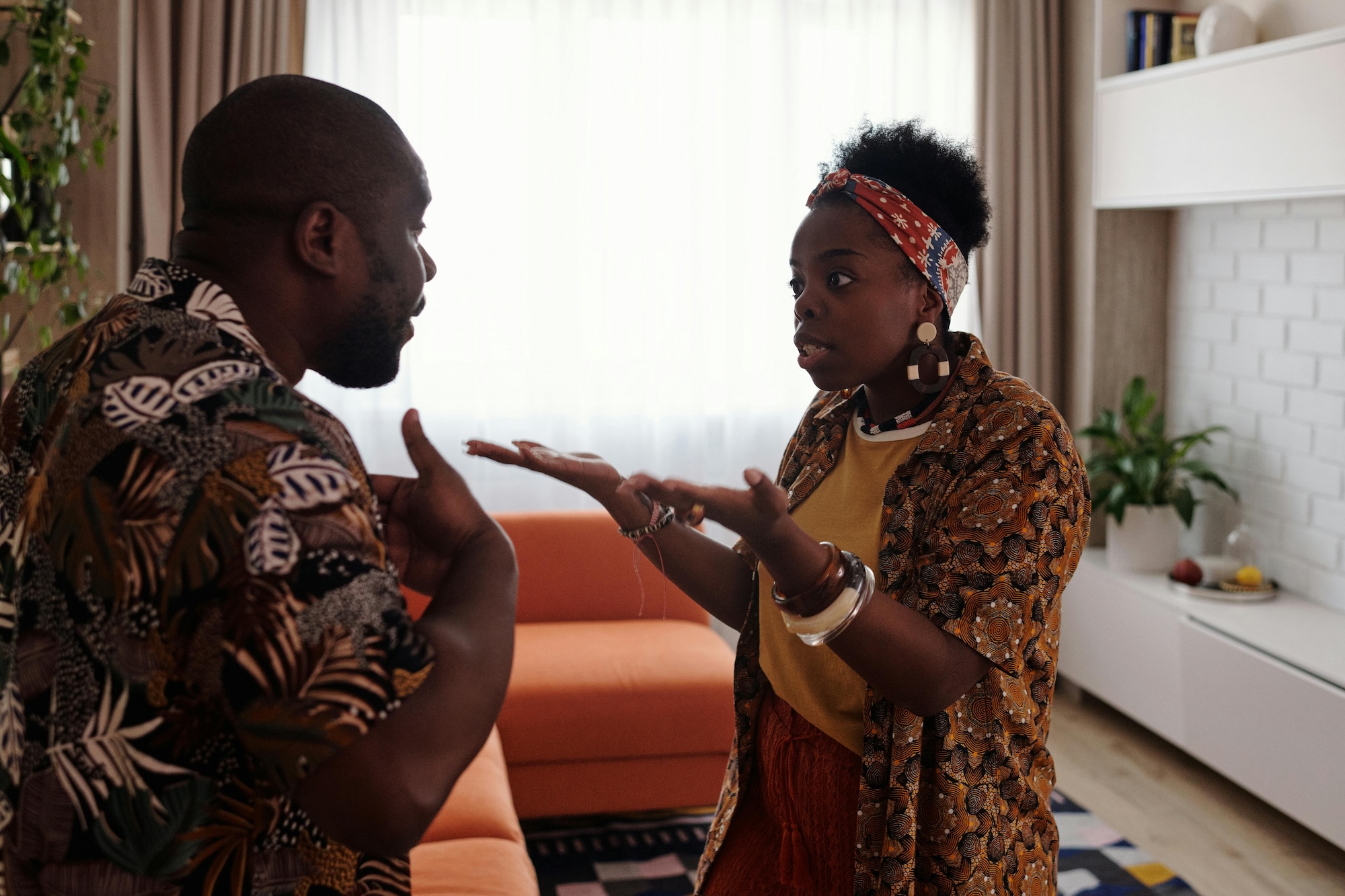What to Do When Your Relationship is at Breaking Point
Relationships aren’t always smooth sailing. They require constant effort and communication to thrive. Ideally, a couple will work through issues as they arise, but this doesn’t always happen. Sometimes, it can feel like you’ve reached a stage where the relationship clearly needs to go one way or the other. In this article, we look at what to do when your relationship is at breaking point.

Relationships aren’t always smooth sailing. They require constant effort and communication to thrive. Ideally, a couple will work through issues as they arise, but this doesn’t always happen. Sometimes, it can feel like you’ve reached a stage where the relationship clearly needs to go one way or the other. In this article, we look at what to do when your relationship is at breaking point.
You can think of maintaining a relationship like keeping a car in good condition. You have to give it regular check-ups, fill up the tank with the necessary fuel, and fix small issues along the way. If you stay on top of these things, your car will run smoothly. You might need “mini repair” sessions every now and then to address any minor problems before they turn into major ones. But if you don’t maintain it, eventually, it will reach a point where it requires significant repairs. It might reach such a state that it’s no longer worth fixing, and you have to let it go.
Similarly, relationships require consistent care and attention to thrive. If you ignore issues or let them fester, you can end up at a breaking point where it becomes more difficult to save the relationship. The irony is that in the moment, it can feel much easier to ignore these “little” problems than to address them head-on. But this almost always lead to bigger problems further down the line.
What is a relationship “breaking point”?
A “breaking point” in a relationship is a critical moment when it’s on the brink of collapse. It’s when one or both partners are seriously considering ending the relationship. This is different from the usual ups and downs that all relationships go through. A breaking point is a more severe stage where the possibility of a breakup becomes very real.
It’s a point where both parties often feel exhausted, hurt, and at a loss for what to do. When looking ahead to the future, it can seem like big changes need to happen for the relationship to continue, or it will inevitably end. This can be a frightening and overwhelming realization, especially if you thought this was the person you were going to be with forever.
One of the challenges with reaching a breaking point is that it’s often clear that a huge amount of effort is needed to fix the relationship. But when you get to this point, you often feel so exhausted and drained that you might question whether you have the energy and willpower to make things work. Still, if you are both truly invested in the relationship, there are steps you can take to try and turn things around.
5 signs your relationship is at breaking point
First, let’s look at the top five signs that your relationship might be at breaking point. Remember, every relationship is unique, so not all of these signs will necessarily apply to you.
1. You are exhausted
One of the signs that your relationship is at breaking point is feeling exhausted all the time. This exhaustion can be physical, emotional, or both. You might feel drained from constantly fighting or attempting to adjust your behavior. You may feel emotionally depleted from constantly worrying about the future of your relationship. This exhaustion can also manifest in physical symptoms, such as tension, headaches, digestive issues, or trouble sleeping. It’s different from the “normal” tiredness that everyone experiences from time to time. It’s more intense and overwhelming—it can feel like you just can’t go on like this anymore.
2. You feel like you’ve tried everything
Another sign that your relationship is at a breaking point is feeling like you’ve tried everything to make the relationship work, and it still hasn’t improved. You might have read books on relationships, made significant changes, and had countless conversations with your partner. But despite all of this effort, it just doesn’t seem to be getting better. This can leave you feeling hopeless and unsure of what else you could possibly do to save the relationship. You might start to question whether there actually is anything that can be done to improve the situation or if it’s just a lost cause.
3. You feel disconnected and alone

Feeling disconnected and alone is another sign that your relationship might be at breaking point. This can happen when communication breaks down, and you and your partner stop sharing your thoughts, feelings, and experiences with each other. You might feel like you’re living parallel lives or that you don’t really know each other anymore, at least on a meaningful level. Being in a healthy relationship involves feelings of connection and intimacy. If those feelings are lacking, it can be a sign that the relationship is in trouble. It might sound cliché, but feeling alone in a relationship can be one of the most isolating experiences—it can be much more painful than being alone on your own.
4. You are constantly arguing
Frequent, intense arguments are also a sign that your relationship may be at breaking point. While disagreements are a normal and healthy part of any relationship, constant bickering and explosive fights can mean that you don’t get the necessary time to heal and reconnect after each argument. This can take a toll in the long run. Arguments often trigger intense emotions such as anger, hurt, frustration, and defensiveness. These can fracture your connection. It’s natural for this to happen, but in a healthy relationship, arguments are often followed by positive interactions that “heal” these fractures and keep your relationship strong. However, when arguments are too frequent or intense, they can create a cycle where these fractures compound over time, eventually leading to a breaking point.
5. You don’t feel like you have a safe space to express yourself
Lastly, not feeling like you have a safe space to share your thoughts and feelings in the relationship can be a sign that it’s at breaking point. This can indicate there has been a significant breakdown of trust and communication. When you feel like you can’t be vulnerable with your partner, it’s challenging to work through issues together and feel connected. Not feeling safe to express yourself can result from not feeling valued or heard by your partner. It’s not always about big, dramatic incidents—sometimes, it’s about feeling dismissed or ignored in your everyday life. After all, if you feel like someone doesn’t care, why would you bother sharing your personal thoughts and feelings with them?
What to do when your relationship is at breaking point
If you have established that your relationship is at breaking point, you may be wondering what to do next. While every relationship is unique, and there is no one-size-fits-all solution, there are some general steps you can take to try to work out the best path forward.
1. Get clear about your feelings and perspectives
The first step is to take some time to reflect on your own feelings and perspectives. What are the main issues you are facing in the relationship? What do you think needs to change for things to improve? How have you been feeling lately about the relationship? Getting clear on your own feelings and perspectives can help you communicate more effectively with your partner and work towards a solution together.
You might struggle to understand your feelings and thoughts, and that’s okay. You can seek support from a therapist or trusted friend to help you get clarity. It’s not about being crystal clear on everything—it’s about having enough awareness to begin a constructive conversation with your partner.
2. Have a “big-picture” conversation
Once you have a better understanding of your own feelings and perspectives, the next step is to have an open conversation about the big-picture issues in your relationship. This isn’t about rehashing every single argument or disagreement you’ve had but rather discussing the overarching patterns that are causing distress. Sure, you can bring up specific examples to help illustrate your points, but the goal is to identify the larger underlying problems.
Using “I” statements can be helpful here—for example, saying, “I feel hurt when you don’t make time for me” instead of “You never make time for me.” During the conversation and afterward, try to empathize with your partner’s perspective. It’s likely that they also feel hurt and frustrated, and it’s important to acknowledge that. When you feel hurt yourself, it can be easy to become so focused on your own pain and the “wrongness” of your partner that you forget to try and understand their feelings.
3. Decide whether it’s worth the effort to fix
There will come a point where you will have to decide whether it’s worth the effort to fix your relationship or not. This will depend on several factors, including the level of commitment from both parties, the severity of the issues, the practicalities, the ability to change, and whether there’s still some love and connection between you. It’s not an easy decision to make, and you may need to seek guidance from a therapist or counselor if you’re feeling stuck.
This decision doesn’t have to be made right away. It isn’t uncommon for couples to go through a few cycles of trying to fix things to see if it’s possible and what will be required. We aren’t fortune tellers who can see exactly how things will play out, and sometimes, a couple needs time to experiment with different approaches and techniques before they can make a clear decision. Making a decision like this requires using your head and your heart. Listen to your intuition, but also consider the practicalities and logistics involved in trying to save your relationship. If you genuinely aren’t compatible for whatever reason, no amount of connection, effort, or love will fix that.

4. Take time for self-care
A relationship reaching a breaking point can be a painful experience that can shake your sense of self and leave you feeling emotionally drained. During this time, it’s crucial to take care of yourself. Everyone processes things in different ways, and there is no single self-care routine that will work for everyone. It’s all about finding what works for you and making time to do those things consistently.
That said, for most people, it’s helpful to stay connected with others during the process, whether that is friends, family, or a therapist. It can be tempting to isolate ourselves when we’re facing challenges in our relationship, but having a support system can provide us with much-needed perspective and comfort. They can offer a more objective view of the situation and help us see things from different angles. Others may want to spend more time alone and focus on activities like meditation, journaling, or exercise to process their feelings. Additionally, make sure you are taking care of your physical health by getting enough sleep, eating well, and engaging in regular physical activity.
5. Consider seeking professional help
We have touched on this point briefly, but it warrants its own section. Seeking professional help from a therapist or couples counselor can be extremely beneficial in navigating a relationship at breaking point. These professionals are trained to provide unbiased support, facilitate productive communication, and offer tools and techniques to help you work through your issues. They can also help you determine whether your relationship is worth salvaging or if it’s time to let go.
It can be hard to see things objectively when we’re in the thick of it, and having an outside perspective can offer a new level of clarity. It can also help to identify specific behavioral patterns and communication styles that may be contributing to the issues in your relationship.
Final thoughts on what to do when your relationship is at breaking point
If you are in a relationship that is at breaking point, know that you are not alone. Many couples have been there before, and it’s possible to come out on the other side even stronger, or you will both have the opportunity to find happiness on separate paths. Deciding whether to end or continue a relationship can be one of the hardest decisions you will ever have to make. So be kind to yourself, and your partner, during this challenging phase.
The chances are that neither path will be easy. If you choose to continue trying, it will take effort and commitment from both of you to work through the issues and rebuild trust. If you decide to part ways, you will likely go through a grieving process and mourn the future you once envisioned. Suffering is an inevitable part of life, but it doesn’t have to define your entire experience. And it won’t last forever. Whatever the outcome, know that you are capable of finding happiness and fulfillment in your life, whether it’s with your partner or without them.




